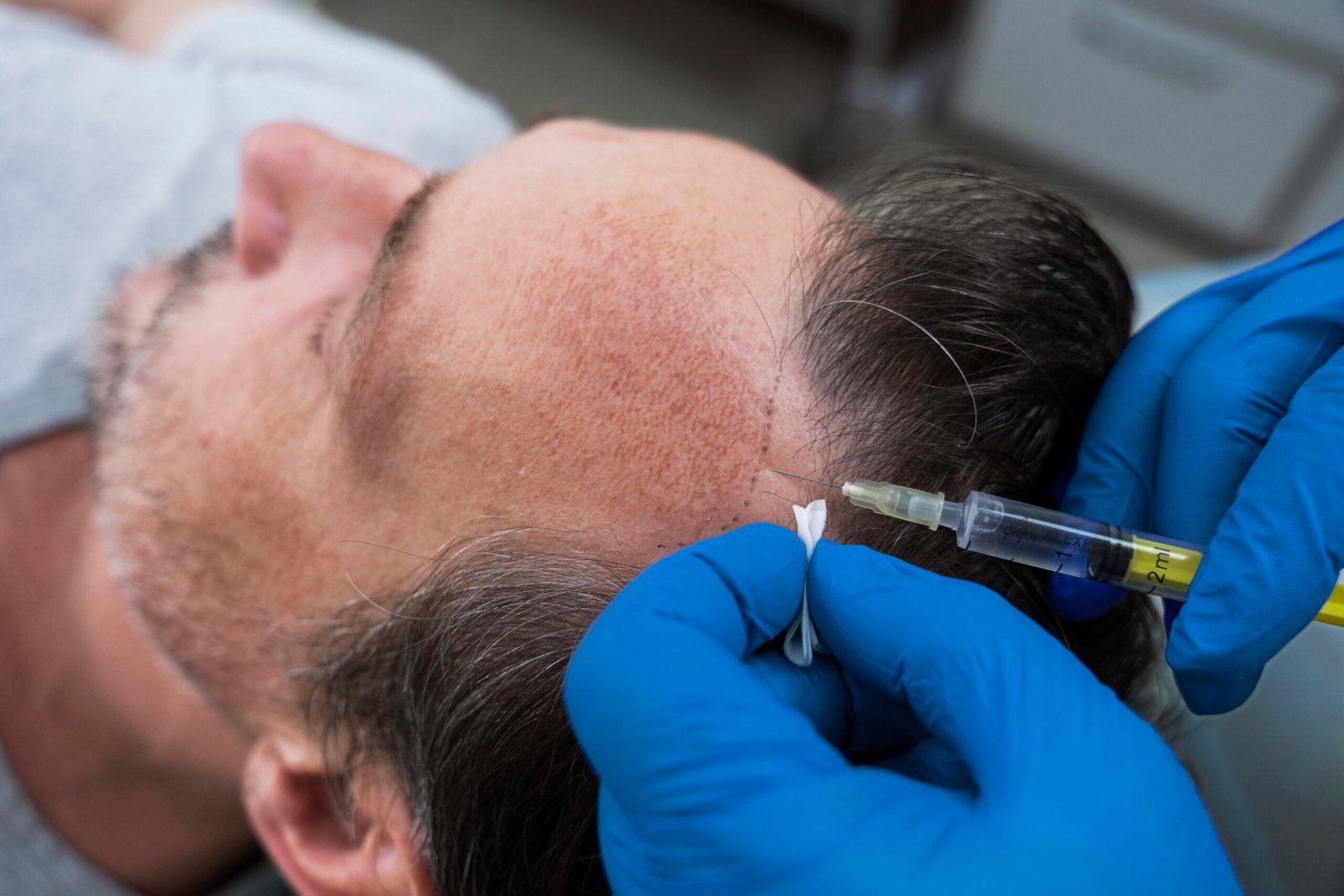Hair loss is a common concern that affects both men and women, often leading to distress and a search for effective solutions. This blog explores the different facets of hair loss, including male baldness, excessive hair shedding, sudden hair loss, and extreme hair loss in women.
Male Baldness: Understanding the Causes and Solutions
Causes:
Male baldness, or androgenetic alopecia, is a common aging ailment that many men experience. Hormones and heredity play the main roles. The hairline often recedes first, followed by a thinning at the crown in the normal pattern. Even if this ailment is widespread, confidence and self-esteem may still be affected.
Solutions:
Thankfully, there are a number of therapies available, ranging from oral drugs like finasteride to topical treatments like minoxidil. Hair transplant surgery is a feasible choice for individuals looking for longer-lasting treatments.
Excessive Hair Shedding: When to Be Concerned
Causes:
Daily hair loss is normal, but at what point does it become excessive? Abnormally high hair loss might be concerning as it could indicate underlying medical conditions. This illness can be caused by a number of factors, including hormone imbalances, stress, and dietary inadequacies.
Solutions:
Maintaining a healthy diet, learning how to manage stress, and seeing a doctor to rule out any major concerns are all essential for reducing excessive hair shedding.
Sudden Hair Loss: Identifying Triggers and Treatments
Causes:
Sudden hair loss can be particularly distressing as it often happens unexpectedly. This type of hair loss can be triggered by various factors including illness, significant weight loss, or a traumatic event. Telogen effluvium is a common form of sudden hair loss, where hair enters the shedding phase prematurely.
Solutions:
Identifying and addressing the trigger is key to managing this condition. Treatments may include lifestyle changes, nutritional support, and sometimes medical interventions.
Extreme Hair Loss in Women: Causes and Care
Causes:
While hair loss is often associated with men, extreme hair loss in women is a significant issue that can have a profound impact on self-esteem and quality of life. Women may experience hair loss due to hormonal changes (such as pregnancy or menopause), medical conditions like polycystic ovary syndrome (PCOS), or traction alopecia from certain hairstyles.
Solutions:
Understanding the root cause is essential for effective treatment. Options include medical treatments, lifestyle modifications, and supportive therapies like scalp massage and the use of gentle hair care products.
Male Baldness: Understanding the Causes and Solutions
Causes:
- Genetics: Family history of baldness is a strong predictor.
- Hormonal Changes: DHT’s role in shrinking hair follicles.
- Aging: Hair growth naturally slows with age.
Solutions:
- Medications: Minoxidil (Rogaine) and finasteride (Propecia) are FDA-approved treatments.
- Hair Transplant Surgery: Follicular unit transplantation (FUT) and follicular unit extraction (FUE) are popular procedures.
- Lifestyle Changes: A healthy diet, regular exercise, and stress management can support hair health.
Excessive Hair Shedding: When to Be Concerned
Causes:
- Stress: Physical or emotional stress can push hair into the shedding phase.
- Nutritional Deficiencies: Lack of essential nutrients like iron, zinc, and vitamins.
- Hormonal Imbalances: Conditions like thyroid disorders can affect hair growth.
Solutions:
- Nutritional Support: Ensuring a balanced diet rich in vitamins and minerals.
- Stress Management: Techniques like yoga, meditation, and regular exercise.
- Medical Consultation: Seeking advice from a healthcare provider to address underlying health issues.
Sudden Hair Loss: Identifying Triggers and Treatments
Causes:
- Illness: Severe infections or illnesses can disrupt the hair growth cycle.
- Significant Weight Loss: Rapid weight loss can lead to nutrient deficiencies.
- Traumatic Events: Emotional trauma or major life changes.
Solutions:
- Identifying Triggers: Work with a healthcare professional to pinpoint and address the cause.
- Medical Treatments: In some cases, medications or treatments like corticosteroids may be prescribed.
- Supportive Therapies: Scalp massages and gentle hair care products can help promote hair health.
Extreme Hair Loss in Women: Causes and Care
Causes:
- Hormonal Changes: Pregnancy, childbirth, menopause, and hormonal birth control.
- Medical Conditions: Polycystic ovary syndrome (PCOS), thyroid disorders, and autoimmune diseases.
- Hairstyles and Treatments: Tight hairstyles, chemical treatments, and excessive heat styling.
Solutions:
- Medical Treatments: Topical treatments like minoxidil, hormonal therapies, and oral medications.
- Lifestyle Modifications: A healthy diet, stress reduction, and avoiding harsh hair treatments.
- Supportive Measures: Using gentle hair care products, considering wigs or hairpieces, and seeking counselling or support groups.
Conclusion
Hair loss can be a difficult condition, regardless of the cause—male baldness, excessive hair shedding, abrupt hair loss, or severe hair loss in women. However, some types of hair loss can be managed, even reversed, with the correct information and strategy. To solve this issue, seeking advice from medical experts, investigating different treatment choices, and upholding a healthy lifestyle are essential measures. We at HealthcareStatOK are dedicated to giving you access to the most recent data and tools to support you on your path to healthier hair. For additional information and tailored guidance, go to HealthcareStatOK.


